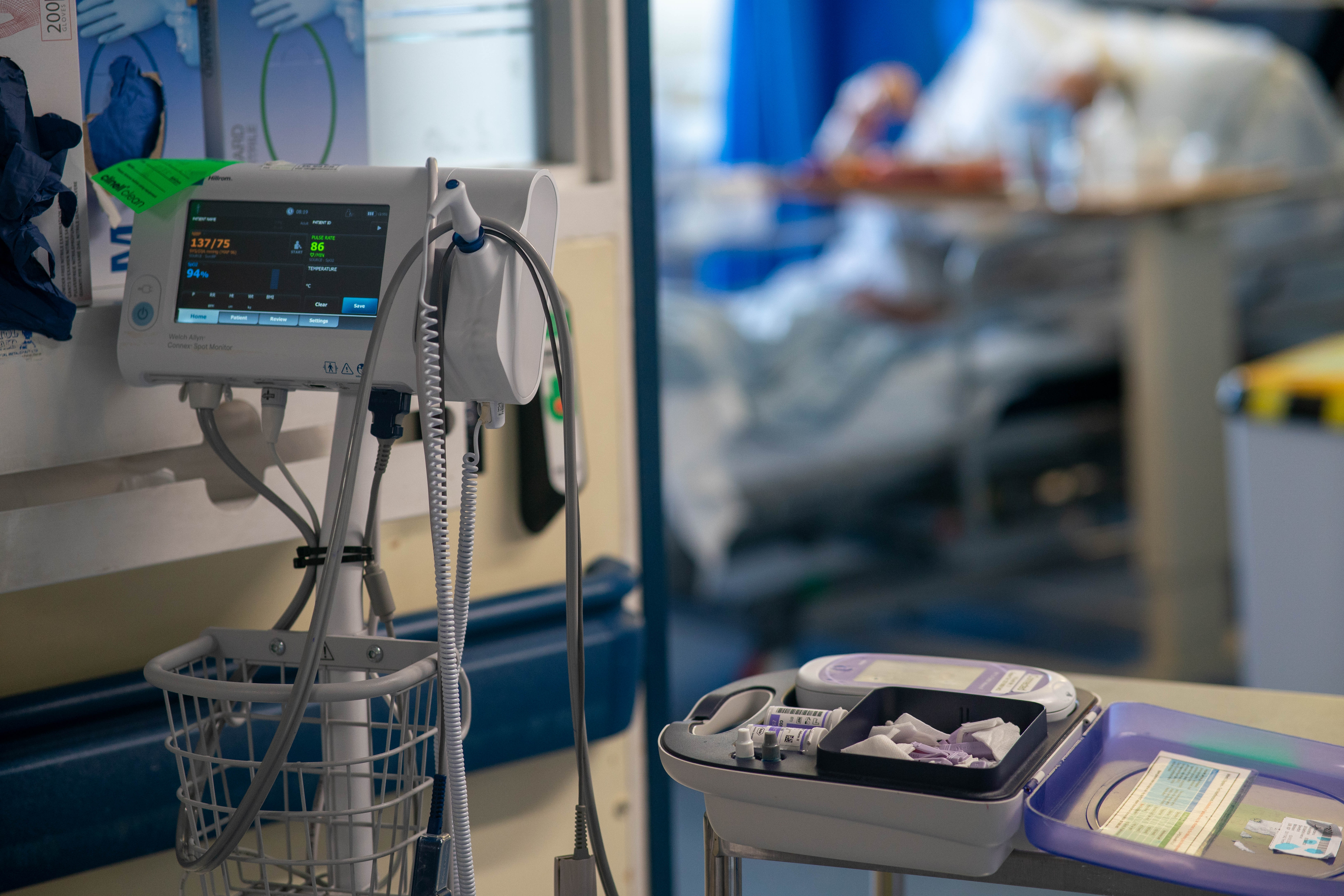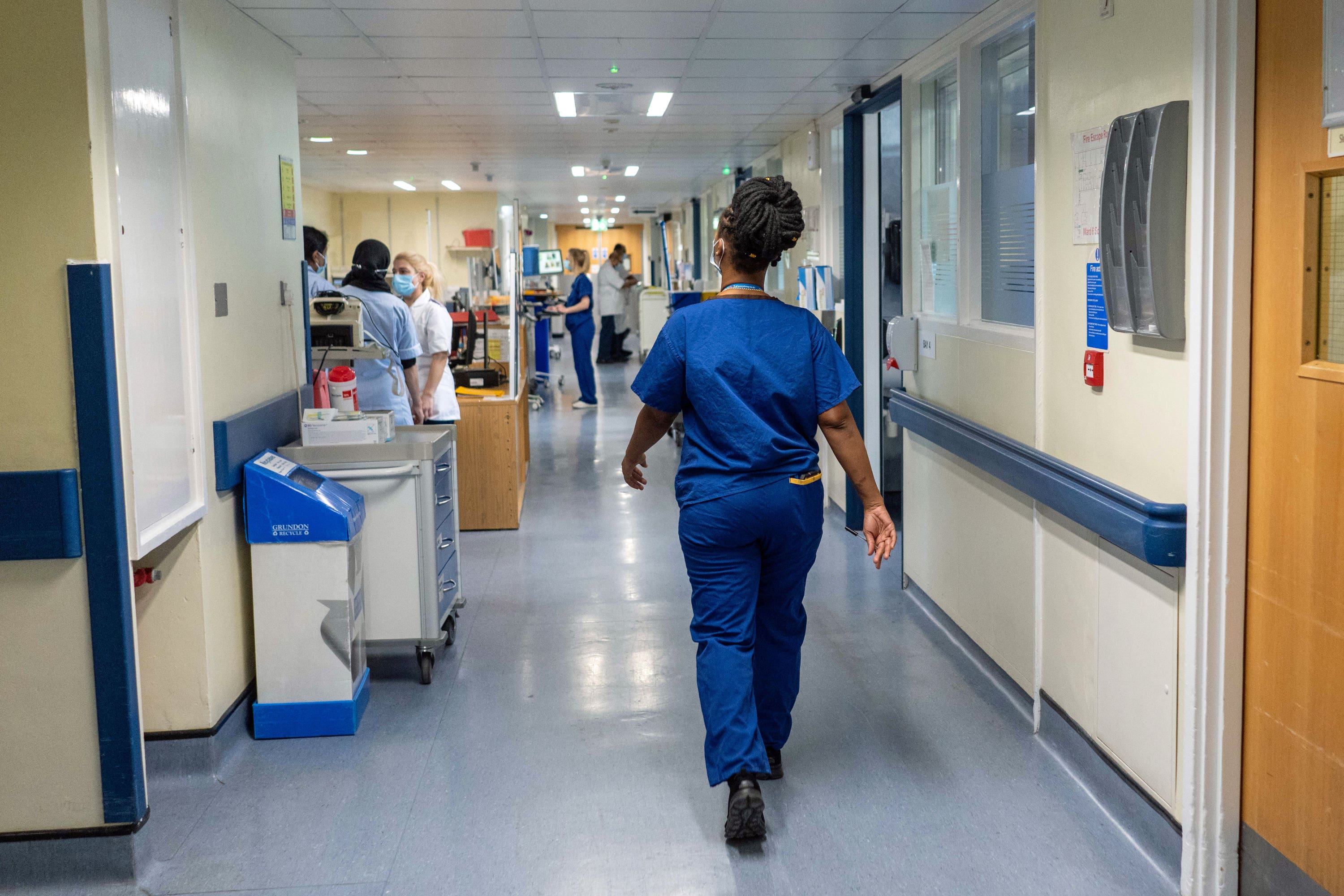Study reveals the people most likely to die from sepsis
Other groups more at risk included people who have a history of extensive antibiotic exposure and those with learning difficulties

Your support helps us to tell the story
From reproductive rights to climate change to Big Tech, The Independent is on the ground when the story is developing. Whether it's investigating the financials of Elon Musk's pro-Trump PAC or producing our latest documentary, 'The A Word', which shines a light on the American women fighting for reproductive rights, we know how important it is to parse out the facts from the messaging.
At such a critical moment in US history, we need reporters on the ground. Your donation allows us to keep sending journalists to speak to both sides of the story.
The Independent is trusted by Americans across the entire political spectrum. And unlike many other quality news outlets, we choose not to lock Americans out of our reporting and analysis with paywalls. We believe quality journalism should be available to everyone, paid for by those who can afford it.
Your support makes all the difference.New research has found people from deprived socioeconomic backgrounds are more likely to develop and die from sepsis.
The new study analysed NHS data on 224,000 cases of sepsis in England and compared the cases to over 1.3 million people who did not have sepsis.
Experts at the University of Manchester found that people from the most deprived communities were 80 per cent more likely to develop sepsis compared to people from the least deprived.
The academics also looked at deaths within 30 days of a sepsis diagnosis and found that people from deprived backgrounds, along with patients with chronic kidney disease and chronic liver disease were the groups that had an increased risk of dying.
Researchers used a standardised measure of socioeconomic deprivation which uses information on income, employment, crime rate, living environment and education.
After making adjustments for other factors, they also found that people with a learning disability were at least three times more likely to be diagnosed with sepsis compared to people without.

Others more likely to develop sepsis included underweight or obese people, people of South Asian descent, smokers and those with a “history of extensive antibiotic exposure”.
Patients with cancer, neurological disease, diabetes and immunosuppressive conditions were also more likely to develop the condition.
Study co-author Dr Colin Brown, lead for antimicrobial resistance and sepsis at the UK Health Security Agency, added: “While severe infections and sepsis can impact anyone, our data is increasingly highlighting the complex interplay between socioeconomic status, underlying medical conditions and sepsis risk.
“Our research has found that some people were more likely to die from sepsis compared to others, including those in the lowest socioeconomic groups, and that those who need to take antibiotics more regularly are also at greater risk.
“Tackling inequalities is a core part of our public health approach and a deeper understanding of who serious bacterial infections affect will help us best target interventions to address them.”
Sepsis is a life-threatening reaction to an infection. It occurs when the body overreacts and starts attacking its own tissues and organs.
Healthcare has a duty to reduce this inequality and improve access for all
In adults, sepsis may feel like flu, gastroenteritis or a chest infection at first. Early symptoms include fever, chills and shivering, a fast heartbeat and quick breathing.
Any child who is breathing very fast, has a fit or looks mottled, bluish, or pale, or has a rash that does not fade when you press it, may have sepsis.
And a baby or child under five years old who is not feeding, vomiting repeatedly or has not had a wee or wet nappy for 12 hours, may have sepsis.
The UK Sepsis trust said the condition affects 245,000 people and claims 48,000 lives in the UK each year.
Dr Ron Daniels, founder and joint chief executive of the UK Sepsis Trust, added: “As an intensive care doctor in inner-city Birmingham, I frequently see patients from underrepresented communities presenting late with sepsis.
“This important study reminds us that socioeconomic status and the presence of underlying illness – which are themselves often interlinked and additionally linked to ethnicity – are at play in determining inequality in the risk of developing non-Covid sepsis.
“Healthcare has a duty to reduce this inequality and improve access for all.”
Join our commenting forum
Join thought-provoking conversations, follow other Independent readers and see their replies
Comments